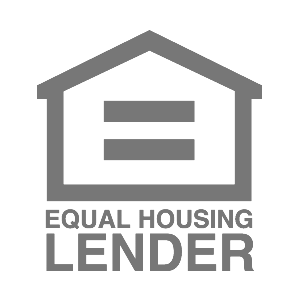
There’s a long-standing myth that home-buying is always better than renting. After all, owning a home is the American dream and renting is just “throwing money away,” right?
Not so fast! Regardless of what your well-meaning parents, your barber or your annoying but more successful older sibling might say, buying a home is not the right choice for everyone.

Get the cash you need with a low-interest personal loan today
Aside from the fact that homes have become just plain unaffordable for most people—the median monthly mortgage payment is now over $3,000—maintaining your own property can be expensive and time-consuming.
By contrast, renting versus buying gives you the freedom to move more often and can even free up your money for that goal so many of us neglect: retirement savings.
So when you’re facing the dilemma of rent vs buy, set aside the idea of what you’re “supposed” to do and consider these details instead.
In This Article
When to rent a home
Renting a house, an apartment, or even a spacious closet is a better choice than buying a home if any or all of the following applies to you:
- You don’t qualify for an affordable mortgage based on your credit scores, income, debt or down payment
- Renting is far more affordable than homebuying in your area
- You don’t want the responsibility of property maintenance
- You’d like to move again in the next few years
- You’d rather invest your money in a lower-cost or lower-maintenance asset
Pros and cons of renting a home
Pros
No maintenance costs
Maintaining a rental unit is much cheaper than maintaining your own home. As a renter, if you need a repair, you can place a maintenance request with your landlord, and voilà, it’s taken care of.
No closing costs
Unlike buying a home, you don’t lose money on closing costs when you rent. The only fee you may have to pay is the landlord’s application fee, usually $25 to $75 per applicant.
Yes, you must pay a security deposit to rent and hand over the first and last month’s rent upfront. But you can get your deposit back if you leave the property in good condition.
More mobility
You have more freedom to up-and-move when you’re renting vs owning. If you want to relocate, you don’t have to worry about putting your home up for sale or losing money in a housing market that favors buyers.
Just keep in mind the terms of your lease. If you decide to move before the lease ends, you might need to pay a fee or find a replacement tenant. Once the lease term is over, you can leave without any penalty.
Cons
Rent increases
When you’re a renter, your monthly rent can go up with a 30-day or 90-day notice (depending on your state of residence). If your landlord decides to increase the rent, you could find yourself Googling “How to make $500 overnight without breaking the law,” or you might just have to find a new home fast.
Even if you have rent control, which limits how much your rent can increase, the landlord can still raise the price. In New York, the annual limit allowed for rent increases is 7.5% per year. And very few other states have rent control policies in place.
No path to ownership
Unfortunately, your monthly rent payment doesn’t help you buy property. As a homebuyer, your monthly mortgage payment will eventually stop and you’ll own your home, but renters will have to pay every month until they pass away, take to the land or (fingers crossed?) find a wealthy and benevolent roommate.
Limited personalization
There are limitations on how you can alter a rental property. For example, some landlords do not allow you to put nails in the walls, sentencing you to a lifetime or a lease-time of sad decorating.
Sure, you might be allowed to paint the entire unit electric green, but you’ll have to paint it back to an approved color when you move out or forfeit some or all of your deposit.
When to buy a home
Buying a home can be an excellent way to build wealth and provide stability for your family. Homebuying is worth considering if all of the following circumstances apply to you:
- You qualify for an affordable mortgage
- You can cover the down payment and closing costs
- You can afford the ongoing maintenance costs
- You plan to live in the property for at least a few years
Pros and cons of buying a home
Pros
Property ownership
Unlike renting, paying a mortgage means you can eventually own property. The path to homeownership is often long—with 30 years of mortgage payments, or even more if you take out a HELOC.
But once the total loan amount (plus fees and interest) is paid off, the property is all yours.
Ability to gain equity
There’s no guarantee a home’s value will increase over time, but historically, that’s what homes do. When the market value increases, you can gain home equity, which is the difference between what you owe on the home and the property value.
Between early 2023 and 2024, homeowners with mortgages saw a 9.6% gain in their equity.
No landlord
As a homeowner, you’re in charge. You don’t have to ask permission to tear up the carpet or apply wallpaper, and you can adopt a pet or a whole horde of pets without fear of violating your lease or being evicted.
Just make sure that, if you’re making big changes to the property, like adding a room, you obtain the proper permits.
Tax incentives
Owning a home can pay off at tax time. The IRS has several incentives that make homeownership more affordable. If you take the time to itemize your deductions (instead of claiming the standard deduction), you can claim each of the following expenses:
- Mortgage interest charges
- Discount points
- Property taxes
Certain home improvements can also qualify you for the Energy Efficient Home Improvement Credit.
Cons
Up-front costs
It might seem obvious, but buying a home is expensive. To close the deal, you’ll have to save money for a down payment and closing costs. If you don’t have a big enough down payment to cover at least 20% of the purchase price, you might have to pay private mortgage insurance (PMI).
There’s also the cost of moving and setting up the new home. Paying movers can get pricey, especially if you want them to bubble-wrap and individually box each of your limited-edition beanie babies.
Depending on your move, you might also have slightly more practical expenses, like say new curtains, a couch or a refrigerator.
Ongoing expenses
Many homebuyers overlook the significant costs of maintaining a home. Home repairs, for anything from broken pipes to pest damage, can cost around 1% to 4% of your property value each year. For a $500,000 home, that’s a painful bill of $5,000 to $20,000 a year.
According to one survey, the average maintenance cost for someone who purchased a home in the prior year was $12,225.
But maintenance isn’t the only ongoing cost involved with owning a home. Unlike renting, you also have to cover:
- All utilities, including water and garbage
- Property taxes, which can increase if your property value increases
- Home insurance (required by most lenders)
- Homeowners Association dues (if applicable), which can increase over time
Mortgage interest
When you repay your home loan, interest charges are a huge part of the equation. Yes, mortgage interest rates are low compared to other loan types, but the total amount you pay on interest alone over 30 years can exceed the loan amount.
For example, if you have a $400,000 mortgage with 7% APR, which is just below the average rate in mid-2024, you’ll pay a jaw-dropping $558,036 in interest over the life of a 30-year loan. Of course, when you’re renting, you don’t have to think about interest charges.
Is it better to rent or buy?
No one answer works for everyone on the question of rent vs. buy. In short, buying a home is better if you can afford ALL the expenses involved, including the mortgage and ongoing property maintenance, and you’re comfortable tying your money up in a long-term investment.
If that’s not you, renting is the best choice. Just make sure you look for other ways to create long-term financial stability, like maxing out your 401(k) or creating a passive income stream.

Get the cash you need with a low-interest personal loan today
Traditional wisdom no longer applies
In the past, most people assumed buying a home was better than renting. But in the age of historically high home prices and mortgage rates, traditional wisdom doesn’t apply.
Buying a home is a great investment for anyone who can afford the significant costs. For many others, however, renting is the best option.
Written by Sarah Brady
Sarah Brady is a financial writer and speaker who’s written for Forbes Advisor, Investopedia, Experian and more. She is also a former Housing Counselor (HUD) and Certified Credit Counselor (NFCC).
All personal loans made by WebBank.
Eligibility for a home equity loan or HELOC up to the maximum amount shown depends on the information provided in the home equity application. Depending on the lender, loans above $250,000 may require an in-home appraisal and title insurance. Depending on the lender, HELOC borrowers must take an initial draw of the greater of $50,000 or 50% of the total line amount at closing, except in Texas, where the minimum initial draw at closing is $60,000; subsequent HELOC draws are prohibited during the first 90 days following closing; after the first 90 days following closing, subsequent HELOC draws must be $1,000, or more, except in Texas, where the minimum subsequent draw amount is $4,000.
The amount of time it takes to get funds varies. It is measured from the time the lender receives all documents requested from the applicant and depends on the time it takes to verify information provided in the application. The time period calculation to get funds is based on the first 4 months of 2023 loan fundings, assumes the funds are wired, excludes weekends, and excludes the government-mandated disclosure waiting period.
For Texas home equity products through Prosper, funds cannot be used to pay (in part or in full) non-homestead debt at account opening.
Depending on the lender, qualified home equity applicants may borrow up to 80% – 95% of their primary home’s value and up to 80% – 90% of the value of a second home. In Texas, qualified applicants may borrow up to 80% of their home’s value. HELoan applicants may borrow up to 85% of the value of an investment property (not available for HELOCs).
Home equity products through Prosper may not be available in all states.
All home equity products are underwritten and issued by Prosper’s Lending Partners. Please see your agreement for details.
Prosper Marketplace, Inc. NMLS# 111473
Licensing & Disclosures | NMLS Consumer Access
